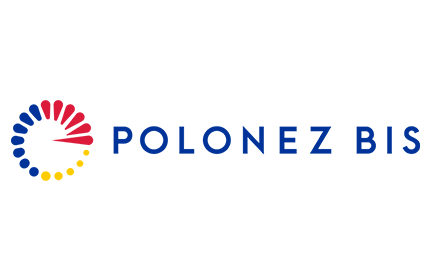Interleukin-18 receptor targeted gene therapy as a novel approach for the treatment of pulmonary hypertension using continuous telemetric recording in conscious rats
2021/43/P/NZ5/02582
Principal Investigator
Dr Tara Elizabeth Scotttara.scott@gumed.edu.pl
(58) 349 1812
Location of project implementation
Department of Pharmacology The Department of Pharmacology, led by prof. Ivan Kocić, conducts a broad spectrum of research, ranging from clinical investigations to advanced experimental pharmacology. Our clinical studies include genetic aspects of hypertension, led by Dr. Marcin Wirtwein. In the realm of basic research, we explore in vivo models such as pulmonary hypertension in rats, platelet function in diabetic rabbits, and peristaltic intestinal movements in situ in rats. We also perform isolated organ studies involving papillary heart muscle, arterial and venous rings, and whole-heart preparations. Department is equipped for telemetry-based research, with fully operational systems and ongoing development of experimental designs. We also maintain active cell culture facilities and have recently focused on drug bioconjugates with cell-penetrating peptides. This work has led to a patented vancomycin-TP10 conjugate, officially recognized in Poland.Significant infrastructure, including:
- Animal Laboratory with surgical capabilities
- Equipment for measuring cardiac and vascular contractility
- Aggregometer and fluorescence microscopy
- Telemetry systems
- Biochemical laboratory
- Access to flow cytometry through collaborative arrangements
- University of Gdańsk
- Department of Clinical and Experimental Pharmacology, Belgrade Medical Faculty, Serbia
- Tokyo Medical and Dental University, Department of Pharmacology
- University of Szeged, Hungary>br>
Our multidisciplinary approach and robust partnerships position us at the forefront of pharmacological research and innovation.
About Project
Project goal:High blood pressure in the lungs, also known as pulmonary hypertension or ‘PH’ is an incurable, complex and multifactorial disease which affects the blood vessels within the lungs as well as the heart. Its effects eventually culminate in heart failure and death. Currently, only 50% of PH patients survive over 5 years, which is an unacceptably high death rate. Presently available drug therapies do lower the lung blood pressure slightly, but they possess little to no ability to rectify the structural changes in the heart and lungs which underlie the condition. It is now well accepted that dysregulation of the immune system plays a central role in the development of PH. There are numerous messengers inside the body that can promote anti- and pro-inflammatory responses. One family of these pro-inflammatory messengers are called ‘interleukins’ which attach to and act on their receptors to exert their effects. Of particular interest to this project is interleukin (IL)-18, which is elevated in the blood of patients with PH. However, the particular role of IL-18 in this setting remains poorly understood, with both protective and detrimental roles reported previously. Therefore, this Polonez Bis postdoctoral fellowship proposal aims to determine the nature of the role of IL- 18 in PH and whether this pathway may represent a viable drug target. There is evidence to suggest that IL- 18’s activity may be time-, quantity-, or disease-stage dependent, whereby it is protective in the early stages of disease development, but transitions to a damaging role once the disease is established. This proposal will utilise a gene therapy to silence one component of the IL-18 receptor and use it in both a prevention and reversal preclinical model to unravel its effects in PH. We hypothesise that blockade of IL-18 signalling prior to PH induction will be deleterious, whereas silencing after the disease is established will be beneficial, uncovering IL-18 receptor-directed gene therapy as a novel approach to treat this deadly disease.
Description of research
This research will develop a cutting-edge gene therapy which will be tested in cells and then a rodent disease model. The cell studies will provide important information on the potential of this treatment before taking the step into trialling the approach in a live animal. Once the cell work is complete the gene therapy will be tested in an innovative rodent model which involves continuous recording of the animals’ lung blood pressure. This method is far more sensitive to uncover beneficial effects and changes than existing methods of measuring this blood pressure and therefore requires a smaller number of animals to achieve the results. We will then examine structural changes that occur in the lungs of these animals and where the inflammation is most prevalent to verify that our treatment is having not only symptomatic benefit, but disease-modifying effects. Finally, additional cell experiments will help us to realise exactly how our gene therapy is providing its beneficial actions.
Reasons for attempting the particular research topic
PH is incurable and patients have an incredibly poor quality of life. Thus, the greatest and arguably most important societal impact of this research programme would be on PH patients and their families leading to substantial improvements in quality and quantity of life. Moreover, PH imposes a remarkable financial burden on healthcare systems and patients globally. Understandably, the ability to reverse disease progression as is outlined in this proposal could greatly reduce these costs. This reduced burden on public healthcare systems would have knock-on effects, allowing redirection of taxpayer funds to other ares such as infrastructure, public safety and environmental preservation, aspects especially important in the growing Polish economy. This state-of-the-art treatment approach would require a single or small number of doses, and be minimally invasive versus currently requisite continuous IV and oxygen therapy, which only extends a poor quality of life by 5 years. The most striking reason for the high potential for success of this research programme is that gene therapy is an emerging approach with established human safety. Indeed, in the context of the global pandemic, some COVID-19 vaccines were developed using this same technology.
Substantial results expected
It is expected that we will establish a highly effective gene therapy for the benefit of PH patients worldwide. Such substantial impact would expand the research potential of Poland on the global stage. It is expected that our gene therapy will be not only be superior to currently used drugs in treating the symptom (i.e., high blood pressure in the lungs), but also the underlying cause (i.e., structural changes in the organs). Our innovative approaches will allow us to gather comprehensive information on the role of IL-18, the actions of our gene therapy and the potential of targeting IL-18 in this manner within a 24-month timeframe. Collectively, this ground-breaking Polonez Bis fellowship proposal using innovative and state-of-the-art techniques will determine whether IL-18-directed gene therapy is a viable, safer, and disease-modifying approach for PH which can readily translate into an impactful clinical medicine to improve the lives and survival of PH patients around the world.
This research is part of the project No. 2021/43/P/NZ5/02582 co-funded by the National Science Centre and the European Union’s Horizon 2020 research and innovation programme under the Marie Skłodowska-Curie grant agreement No 945339.
News and Events
01.04.2024 – Official start of project implementation. Project will last for 24 months until 31.03.2026.


